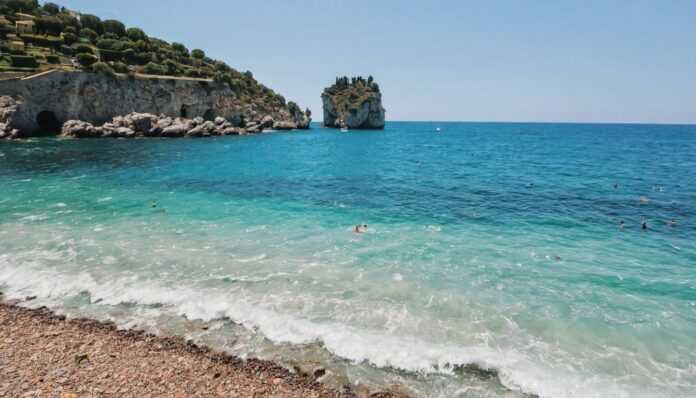The Mediterranean Sea is one of the most famous and historically significant bodies of water in the world. Surrounded by Europe, Asia, and Africa, it has been a vital route for trade, culture, and exploration for thousands of years. Today, it continues to be a crucial hub for tourism, fishing, and maritime activities.
Geography and Size
The Mediterranean Sea covers an area of about 2.5 million square kilometers (970,000 square miles). It is connected to the Atlantic Ocean through the narrow Strait of Gibraltar, and it is bordered by 22 countries, including Spain, France, Italy, Greece, Turkey, and Egypt. The sea has a maximum depth of about 5,267 meters (17,280 feet) in the Calypso Deep.
Interesting Facts About the Mediterranean Sea
- The Mediterranean Sea is almost completely enclosed by land.
- It is connected to the Red Sea by the Suez Canal.
- The name “Mediterranean” comes from the Latin “mediterraneus,” meaning “inland” or “middle of the land.”
- It has a coastline of about 46,000 kilometers (28,580 miles).
- The Mediterranean is home to over 17,000 marine species.
- The sea’s salinity is higher than that of the Atlantic Ocean.
- The Mediterranean region is known for its unique climate, perfect for growing olives and grapes.
- Ancient civilizations, including the Egyptians, Greeks, and Romans, thrived around the Mediterranean.
- The sea has been a major trade route for thousands of years.
- The Mediterranean is famous for its clear, blue waters.
- It has several deep-sea trenches, with the deepest being the Calypso Deep.
- The Mediterranean Sea supports a rich diversity of marine life.
- It is a popular destination for tourists from around the world.
- The sea is bordered by 22 countries.
- It is a significant route for shipping and transportation.
- The Mediterranean’s unique ecosystem includes rare species like the Mediterranean monk seal.
- The sea has numerous islands, including Cyprus, Crete, and Sardinia.
- Overfishing is a significant problem in the Mediterranean.
- The sea’s water levels have been rising due to climate change.
- The Posidonia seagrass meadows in the Mediterranean are crucial for marine life.
- The Mediterranean region has a rich cultural and historical heritage.
- Many ancient ruins, such as the Roman Colosseum, are located near the Mediterranean.
- The sea experiences very little tidal movement compared to other oceans.
- The Mediterranean is divided into several smaller seas, including the Adriatic and Aegean Seas.
- The Strait of Gibraltar connects the Mediterranean Sea to the Atlantic Ocean.
- The sea has been the site of numerous historical naval battles.
- Pollution from plastic waste is a growing concern in the Mediterranean.
- The Mediterranean is known for its delicious seafood cuisine.
- The sea’s unique currents and winds make it popular for sailing and yachting.
- Efforts are underway to establish marine protected areas to conserve the Mediterranean’s biodiversity.
